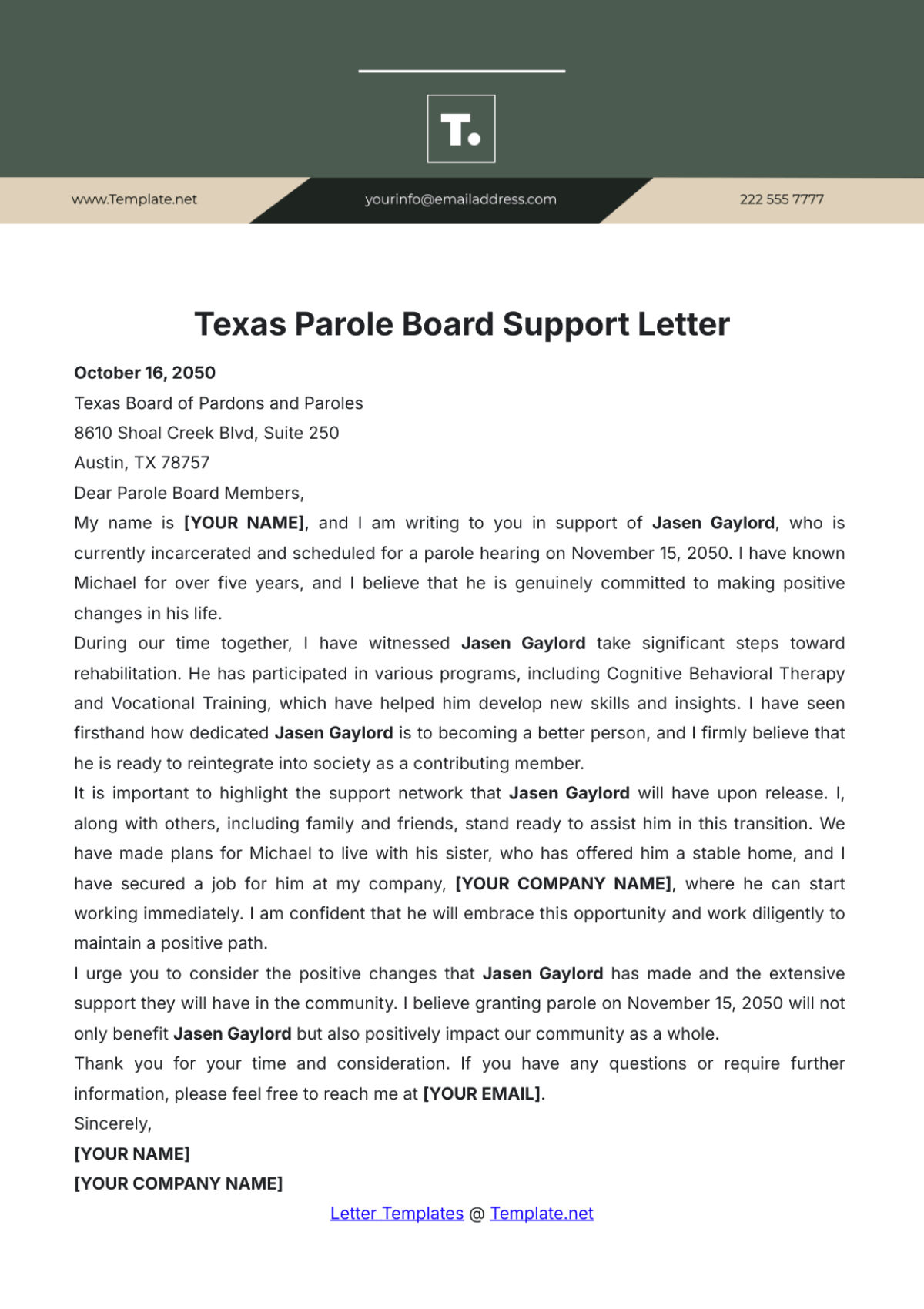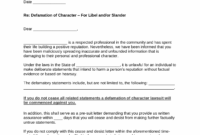When someone you care about is seeking parole, it’s a moment filled with both hope and anxiety. The parole board carefully considers many factors, and among the most influential are letters of support from family, friends, and community members. These letters aren’t just formalities; they are powerful personal statements that can paint a vital picture of the applicant’s character, rehabilitation, and their readiness to successfully re-enter society. Your words can make a genuine difference, offering a glimpse into the person beyond their past actions.
Understanding what to say and how to say it can feel overwhelming, especially during an emotional time. That’s why having a clear framework is so helpful. This article aims to guide you through the process of crafting an impactful letter, providing insights into what the parole board looks for, and ultimately helping you utilize a solid support letter template for parole to express your invaluable endorsement effectively and sincerely.
What Makes a Powerful Support Letter for Parole?
A truly effective support letter for parole goes beyond a simple plea for release. It serves as a testament to the incarcerated individual’s positive changes, their growth while in custody, and the robust support system awaiting them on the outside. The parole board wants to see evidence that the applicant is not only remorseful but has also taken concrete steps towards rehabilitation and has a viable plan for a productive life post-release. Your letter provides this crucial real-world context, helping them see the person through the eyes of someone who knows them well.
The best letters are sincere, specific, and reflective. Generic statements like “he’s a good person” hold less weight than specific examples of observed positive behavior, improved decision-making, or commitment to personal development. Perhaps you’ve witnessed their dedication to educational programs, their engagement in therapy, or their expressed remorse and understanding of the impact of their actions. These details are vital because they demonstrate actual change, not just theoretical good intentions.
It’s important to consider who should write these letters. While immediate family members are common, letters from employers who have offered a job, mentors, spiritual advisors, or community leaders can be incredibly impactful. Each different perspective adds another layer of credibility and demonstrates a wider network of support. The more people who can genuinely speak to the applicant’s positive character and future potential, the stronger the overall case for parole becomes.

Ultimately, a powerful letter is well-structured, easy to understand, and focuses on the future while respectfully acknowledging the past. It’s about presenting a holistic view that combines personal reassurance with practical plans for successful reintegration.
Key Components to Include:
- Your Relationship to the Incarcerated Individual
- Acknowledgment of the Offense (without excusing it)
- Observed Growth and Rehabilitation
- Future Plans and Support System
- Offer of Continued Assistance
- Request for Favorable Consideration
Crafting Your Message: A Step-by-Step Guide
When you sit down to write, imagine you are speaking directly to the parole board. Your tone should be respectful, professional, yet heartfelt. Start with a clear salutation to “The Honorable Parole Board” or “To Whom It May Concern,” followed by your name, relationship to the applicant, and the applicant’s full name and inmate number. This immediate clarity helps the board quickly understand the context of your letter and who you are supporting.
The body of your letter is where you will share your unique insights. This is not the place to argue guilt or innocence, but rather to focus on what you have observed since the conviction and how you believe the individual has changed. Provide specific anecdotes or examples that illustrate their growth, remorse, and commitment to a law-abiding life. For instance, if they’ve completed educational courses, maintained sobriety, or consistently shown positive behavior during visits, highlight these achievements.
Crucially, articulate the specific support you are prepared to offer upon their release. This could include providing a stable home environment, offering employment, assistance with transportation, emotional support, or help connecting with community resources. Concrete offers of support demonstrate that the individual will not be returning to an environment where they are isolated or without guidance, significantly increasing their chances of successful reintegration.
Remember to maintain a balance. While your letter is a positive endorsement, it should also reflect an understanding of the seriousness of the situation. Acknowledge the applicant’s past actions and the impact they had, without condoning them. This nuanced approach shows maturity and strengthens your credibility. A well-constructed support letter template for parole guides you through each of these vital sections, ensuring no crucial detail is overlooked.
- Start with a clear salutation to the parole board.
- State your name and relationship to the applicant.
- Express your awareness of their situation and the purpose of your letter.
- Share specific, positive changes you’ve observed in the applicant.
- Detail the support you’re prepared to offer upon their release (housing, employment, emotional, etc.).
- Conclude with a respectful request for their favorable consideration.
Your contribution to the parole process is more significant than you might imagine. A thoughtfully written letter provides the parole board with a deeper, more personal understanding of the applicant, offering crucial insights into their character, their rehabilitative journey, and the network of support that will help them thrive upon release. It’s an opportunity to underscore their potential for a positive future, emphasizing their readiness to become a contributing member of society.
Taking the time to craft a sincere and detailed letter is an act of profound support. Your words serve as a bridge between the applicant’s past and their hopeful future, helping the parole board make an informed decision that considers the full scope of their potential. Be honest, be specific, and let your genuine belief in the individual shine through.



